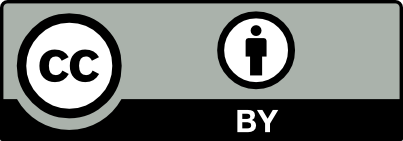Drug repurposing clinical trials in the search for life-saving COVID-19 therapies; research targets and methodological and ethical issues
DOI:
https://doi.org/10.22239/2317-269X.01596Keywords:
COVID-19, Clinical Trials, Antiviral Drugs, Pneumonia, Acute Respiratory Distress SyndromeAbstract
Introduction: So far, there is no vaccine, nor are there effective drugs to treat COVID-19, an emerging viral respiratory infection deadlier than influenza. Objective: To take a snapshot picture of planned and ongoing clinical research addressing drugs potentially useful for treating SAR-CoV-2 infections. Method: A search was conducted (20 April 2020) in an international registry of clinical studies (https://ClinicalTrials.gov, US NIH). After excluding observational studies and other interventions that fell outside the scope of this study, 294 research protocols (out of 516 retrieved protocols) were selected for analysis. Results: Of 294 included trials, 249 were Randomized Controlled Trials (RCT), 118 of which were double-, triple- or quadruple-blinded studies. The interventions (drug therapies) were compared with “standard-of-care” (SOC) or with the placebo plus SOC, or yet with presumed “active” comparators. RCT focused on the primary treatment of the disease (inhibitors of viral replication) or on the therapy for resolution of hyperinflammation in pneumonia/Acute Respiratory Distress Syndrome (ARDS) and thromboembolism associated with SARS-CoV-2. The trials found in the database involve existing antiviral compounds and drugs with multiple modes of antiviral action. Antiparasitic drugs, which inhibited viral replication in cell-culture assays, are being tested as well. Regarding the adjunctive immunomodulatory, anti-inflammatory and antithrombotic therapies, a number of drugs with distinct pharmacological targets are under investigation in trials enrolling patients with severe COVID-19. Conclusions: Although many clinical studies of drugs for COVID-19 are planned or in progress, only a minority of them are sufficiently large, randomized and placebo-controlled trials with masking and concealment of allocation. Owing to methodological limitations, only a few clinical trials found in the registry are likely to yield robust evidence of effectiveness and safety of drugs repurposable for COVID-19.
Downloads
Downloads
Published
Versions
- 2020-10-15 (2)
- 2020-05-29 (1)
Issue
Section
License
Copyright (c) 2020 Health Surveillance under Debate: Society, Science & Technology (Vigilância Sanitária em Debate: Sociedade, Ciência & Tecnología) – “Visa em Debate”

This work is licensed under a Creative Commons Attribution 3.0 Unported License.
COPYRIGHT ALLOWANCE The author (s) hereinafter designated as the ASSIGNOR hereby assign and transfer, free of charge, the ownership of the copyrights related to this ARTICLE to the Vigilância Sanitária em Debate: Sociedade, Ciência & Tecnologia (Health Surveillance under Debate: Society, Science & Technology) – Visa em Debate, represented by FUNDAÇÃO OSWALDO CRUZ, established at Av. Brasil, nº 4365, Manguinhos, Rio de Janeiro, RJ, Brazil, CEP 21045-900, under the conditions set out below: (a) The terms and conditions set forth in this Agreement shall apply to the following: 1. The ASSIGNOR declares that they s(he) is (are) the author (s) and owner (s) of the copyrighted property of the ARTICLE submitted. 2. The ASSIGNOR declares that the ARTICLE does not infringe the copyrights and / or other property rights of third parties, that the disclosure of images (if any) has been authorized and that they s(he) assume(s) full moral and / or property liability for its content, before third parties. 3. THE ASSIGNOR assigns and transfers all copyrights relating to the ARTICLE to the ASSIGNEE, especially the rights of editing, publication, translation into another language and reproduction by any process or technique. The ASSIGNEE becomes the exclusive owner of the rights related to the ARTICLE, and any reproduction, totally or partially, is prohibited in any other means of publicity, printed or electronic, without prior written authorization from the ASSIGNEE. 4. The assignment is free and, therefore, there will be no remuneration for the use of the ARTICLE by the ASSIGNEE.







